
Remakes have always had a special place in Indian cinema. A film that clicks with audiences in one language often gets retold in another, sometimes with new stars and a new setting, but the same heart. Over the years, many such films have crossed regional boundaries to become pan-India favourites. From emotional dramas and thrillers to laugh-out-loud comedies, these stories prove that a good film speaks every language.Here’s a look at some of the most remade films in Indian cinema, many of which became huge Bollywood hits, while also spawning adaptations in multiple languages.
Tere Naam
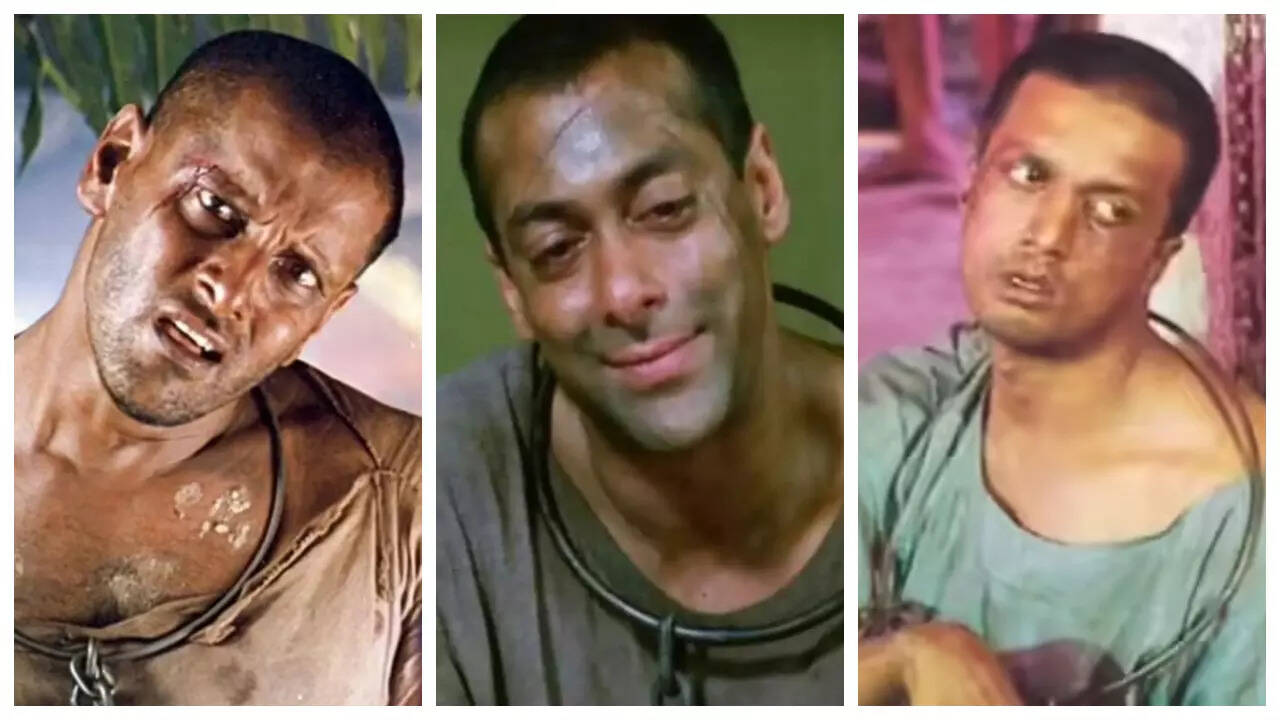
Salman Khan’s Tere Naam is often remembered as one of his most powerful performances, but not many know it was actually a remake of the Tamil hit Sethu (1999), which turned Vikram into a star. The emotional love story struck such a chord that it was remade in Kannada as Huchcha (2001), Telugu as Seshu (2002), and in Bangladeshi Bengali as Tor Karone Beche Achi (2003). Despite getting mixed reviews, Tere Naam became a huge cultural moment, thanks to its heartbreaking storyline and unforgettable music.
Singham
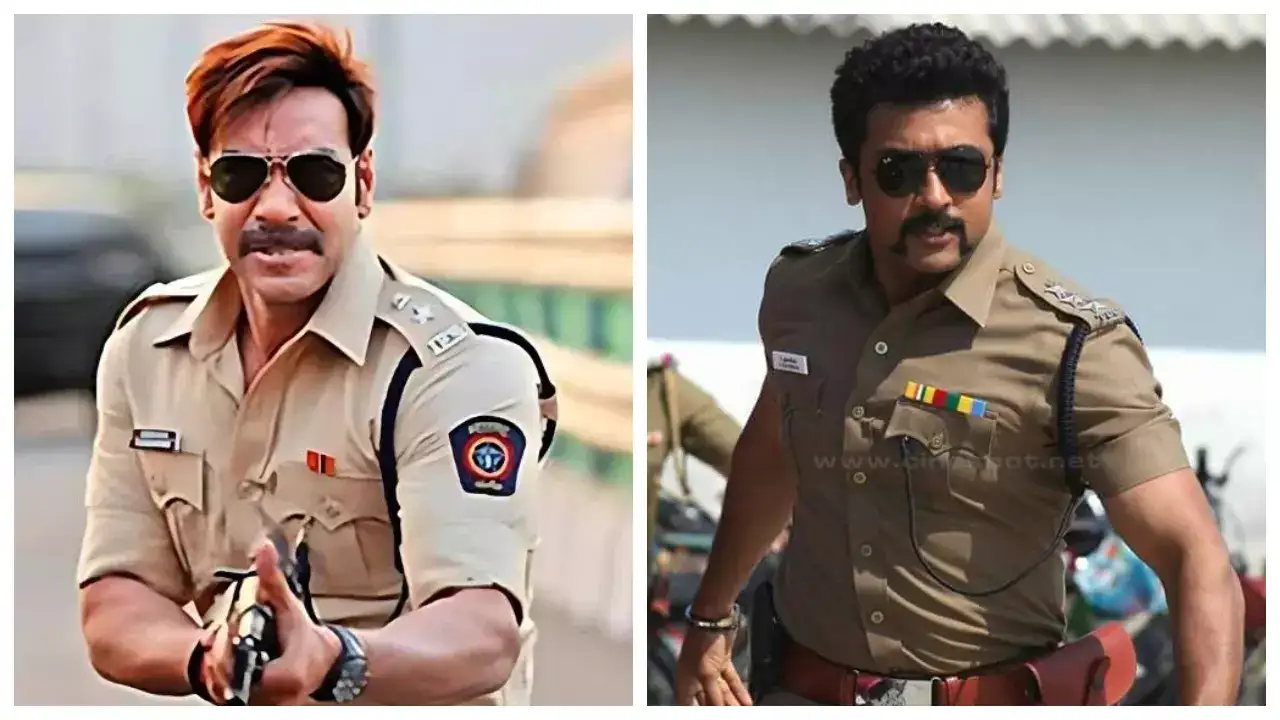
Rohit Shetty’s Singham, starring Ajay Devgn, redefined Bollywood’s cop dramas with its fiery dialogues and high-octane action. The film was a remake of Suriya’s Tamil blockbuster Singam (2010), which grew into a successful franchise with sequels like Singam 2 and Si3. The story even traveled to Punjabi cinema with Singham (2019), led by Parmish Verma. Its massive success not only turned Ajay Devgn’s Bajirao Singham into an iconic character but also kickstarted Shetty’s cop universe, later expanded with Simmba and Sooryavanshi.
Bodyguard
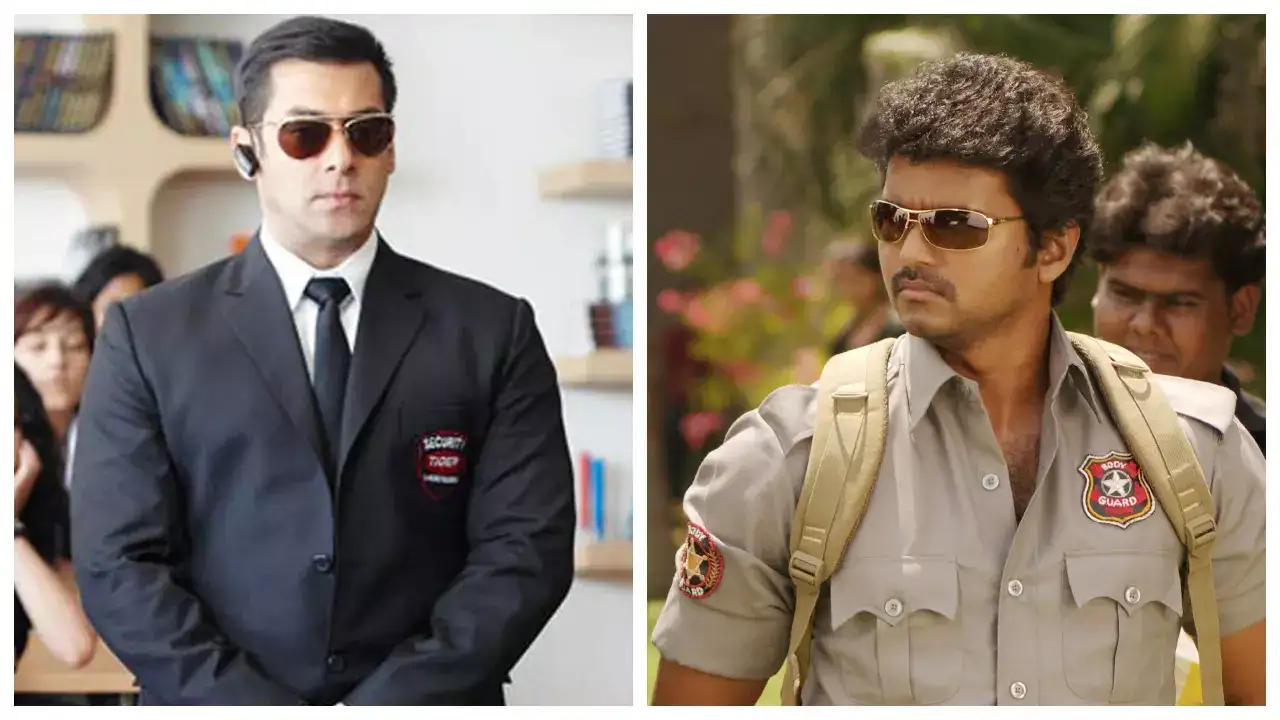
The Malayalam hit Bodyguard (starring Dileep and Nayanthara) was so popular that it inspired remakes across multiple industries—Kaavalan (2011, Tamil) with Vijay and Asin, Bodyguard (2011, Kannada) with Jaggesh, and Bodyguard (2012, Telugu) with Venkatesh and Trisha. But it was Salman Khan and Kareena Kapoor’s Hindi version that stole the show, smashing box office records and turning its music into a nationwide craze.
No Entry
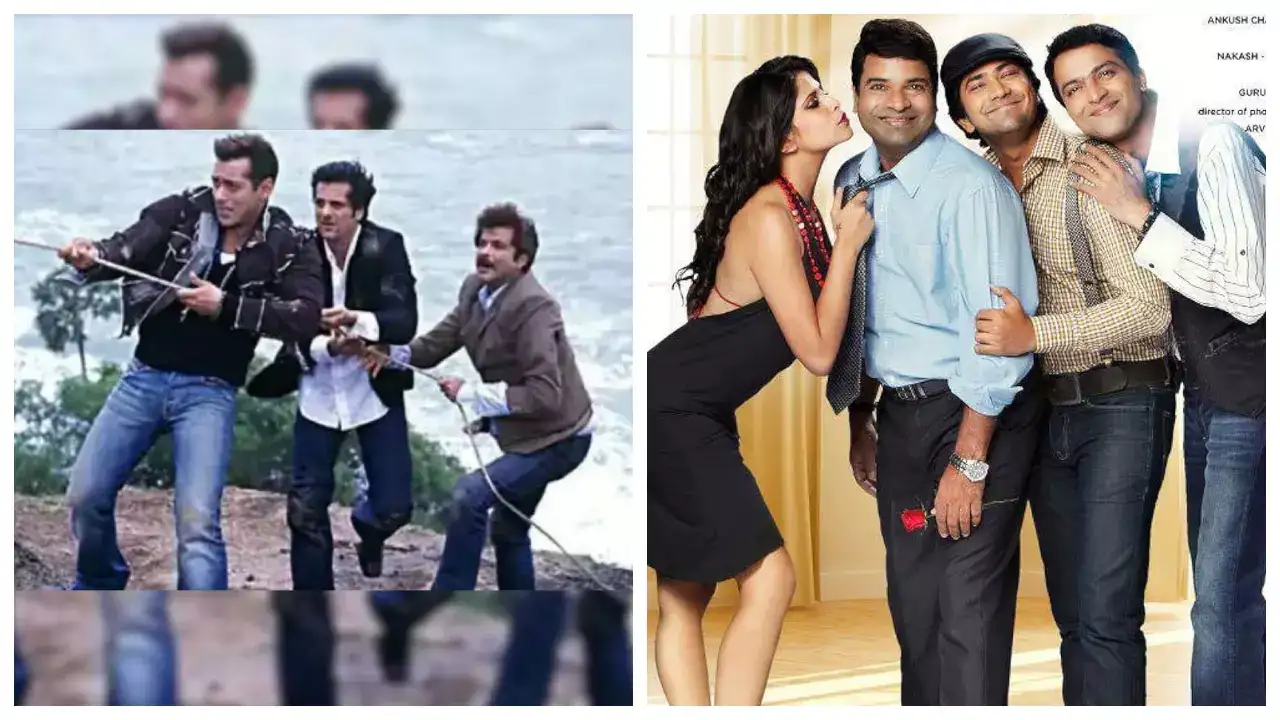
Anees Bazmee’s No Entry (2005), featuring Salman Khan, Anil Kapoor, Fardeen Khan, Bipasha Basu, and Lara Dutta, became one of Bollywood’s biggest comedy blockbusters with its story of marital mix-ups and mistaken identities. The film was a remake of the Tamil hit Charlie Chaplin (2002), starring Prabhu Deva and Prabhu, and even inspired a Marathi remake, No Entry Pudhe Dhoka Aahe (2012). Fans have long awaited its sequel, No Entry Mein Entry, but the project has been stuck in development for years.
Tevar
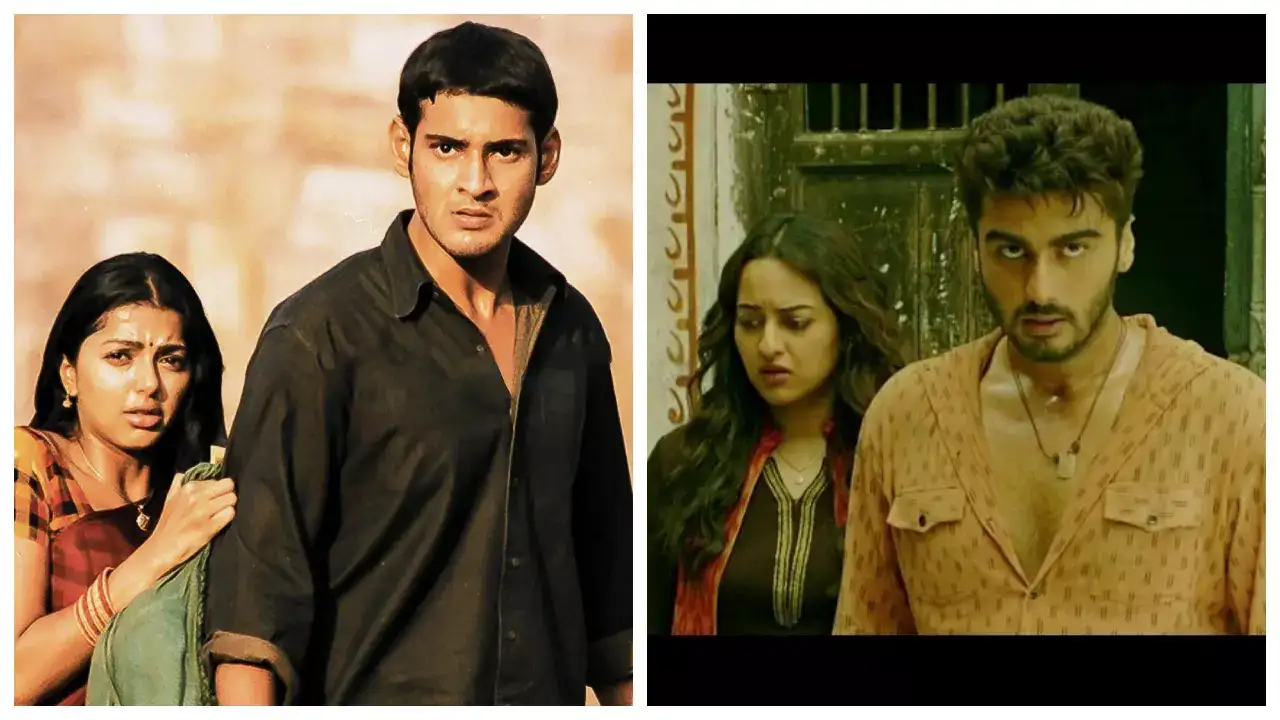
Arjun Kapoor and Sonakshi Sinha’s Tevar (2015) may not have impressed at the box office, but its original, Okkadu (2003) starring Mahesh Babu, was a game-changing Telugu hit. The story of a young man rescuing a woman from a ruthless villain proved so popular it was remade multiple times: Ghilli (2004, Tamil) with Vijay, Ajay (2006, Kannada) with Puneeth Rajkumar, Arjun (2004, Odia), Jorar (2004, Bengali), Run (2007, Bangladeshi), and finally Tevar in Hindi. While Tevar underperformed, Okkadu and Ghilli are still regarded as cult classics.
Drishyam
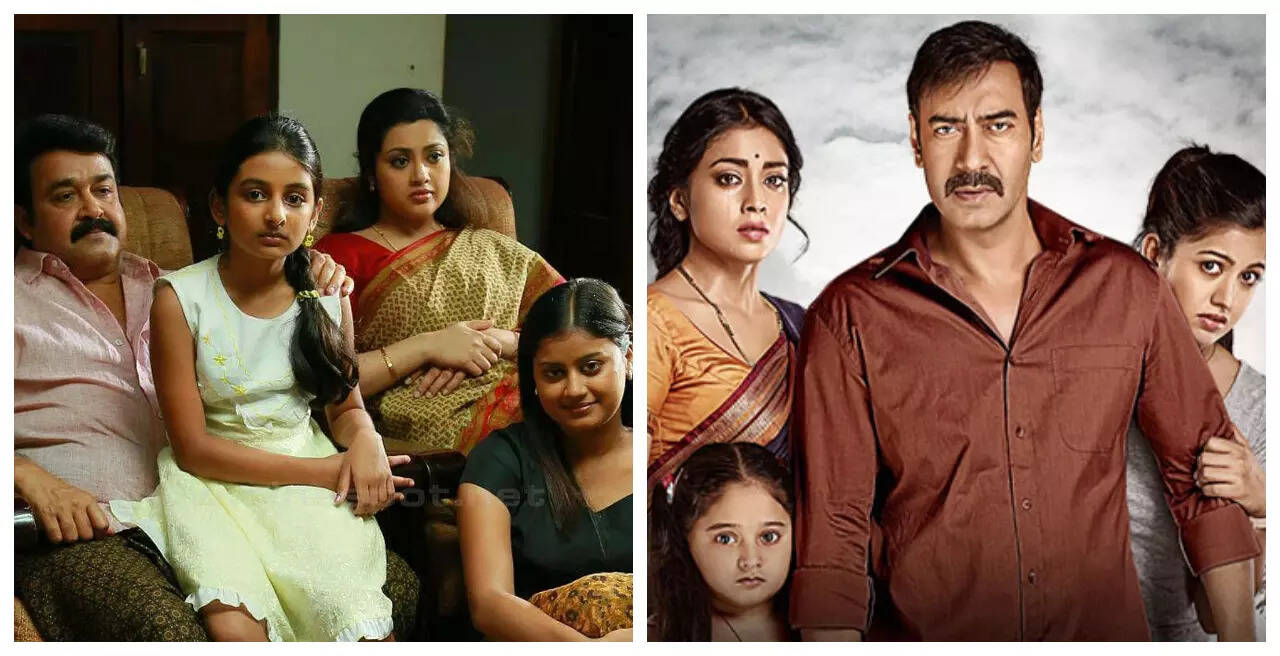
Mohanlal’s Drishyam (2013, Malayalam) set a new standard for suspense thrillers in Indian cinema with its smart storytelling and edge-of-the-seat drama. The film’s universal appeal led to remakes in almost every major language—Drishya (Kannada, 2014), Drushyam (Telugu, 2014), Papanasam (Tamil, 2015), and Drishyam (Hindi, 2015). Ajay Devgn’s Hindi version turned into a massive hit and later spawned a blockbuster sequel, cementing Drishyam as one of the most successful and widely loved thrillers in India.
Munna Bhai MBBS
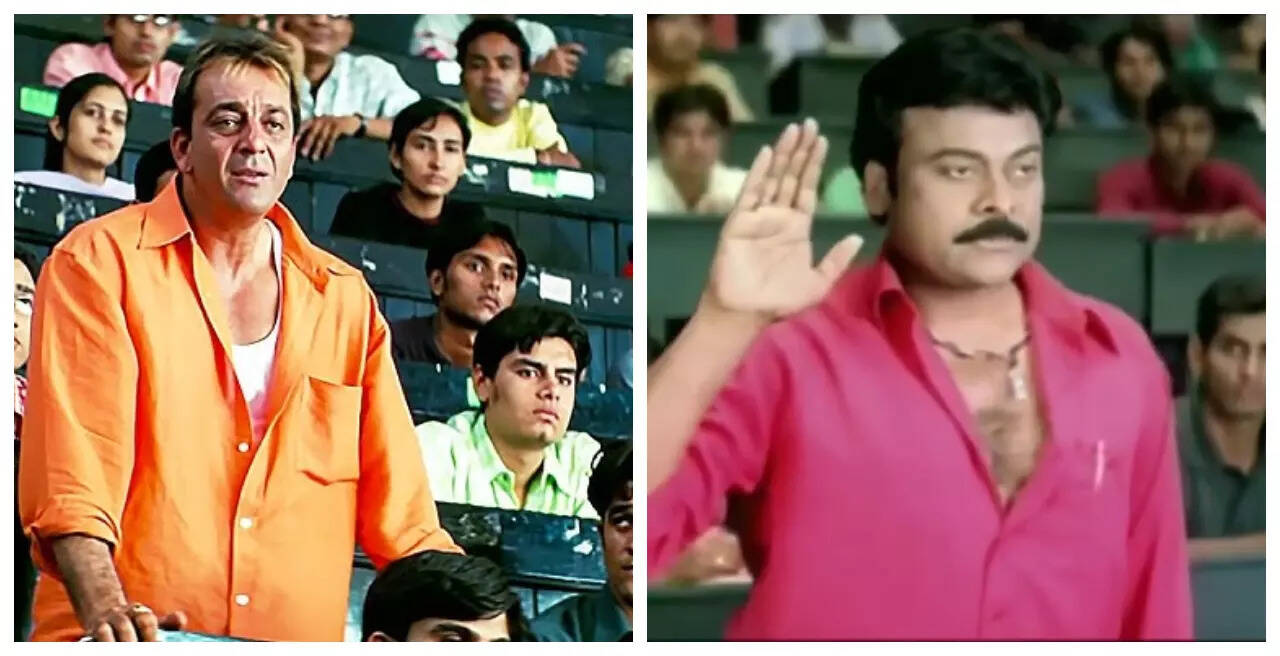
Rajkumar Hirani’s Munna Bhai MBBS (2003) gave Bollywood one of its most loved characters, with Sanjay Dutt playing a lovable gangster who enrolls in medical college. The film not only revived Dutt’s career but also struck an emotional chord with audiences through its mix of humor and heart. Its popularity led to several South Indian remakes—Vasool Raja MBBS (Tamil, 2004) with Kamal Haasan, Shankar Dada MBBS (Telugu, 2004) starring Chiranjeevi, and Uppi Dada MBBS (Kannada, 2006) with Upendra.
Ramji Rao Speaking
The Malayalam comedy Ramji Rao Speaking (1989), which follows three men caught in a kidnapping mix-up, inspired several remakes across India. It was adapted as Arangetra Velai (Tamil, 1990), Hera Pheri (Hindi, 2000), Dhanalakshmi, I Love You (Telugu, 2002), and Thirupachi Aruva (Kannada, 2007). Of these, Priyadarshan’s Hera Pheri, starring Akshay Kumar, Suniel Shetty, and Paresh Rawal, became a cult classic and remains one of India’s most beloved comedies.
Devdas
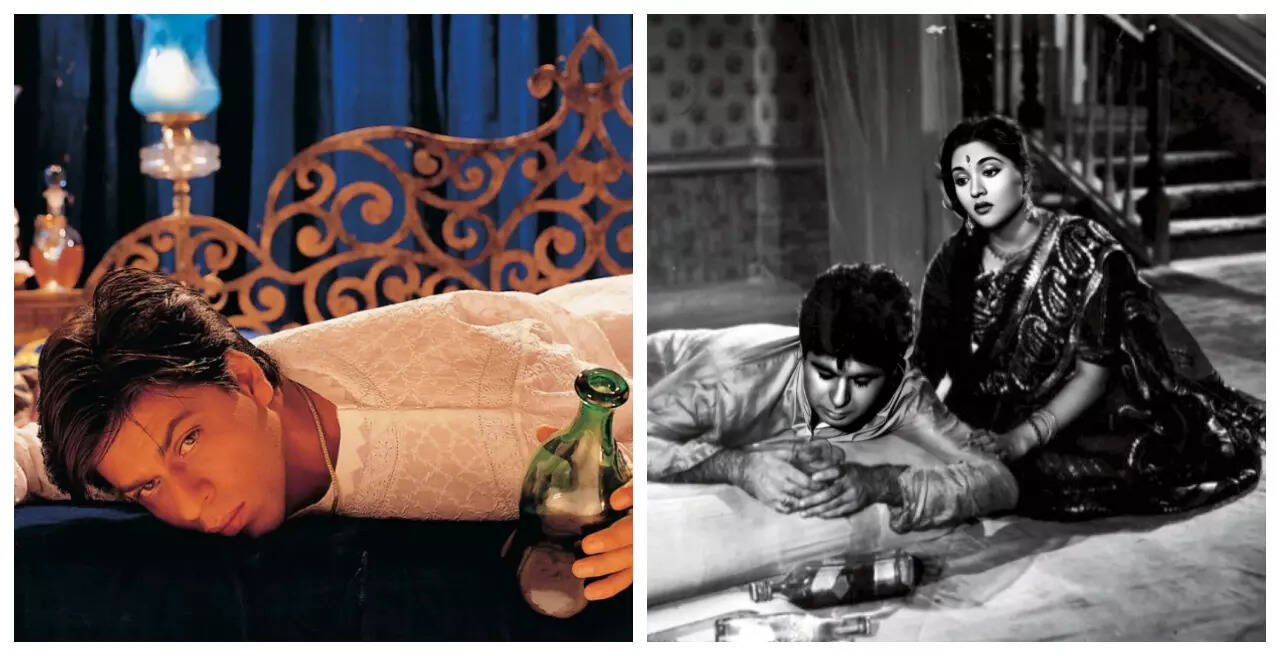
Sanjay Leela Bhansali’s Devdas, starring Shah Rukh Khan and Aishwarya Rai, is one of the most iconic adaptations of Sarat Chandra Chattopadhyay’s 1917 novel. The story has been told in Bengali, Telugu, Tamil, Assamese, and more, with each version adding its own cultural touch. Bhansali’s visually opulent take continues to inspire filmmakers.
Bhool Bhulaiyaa
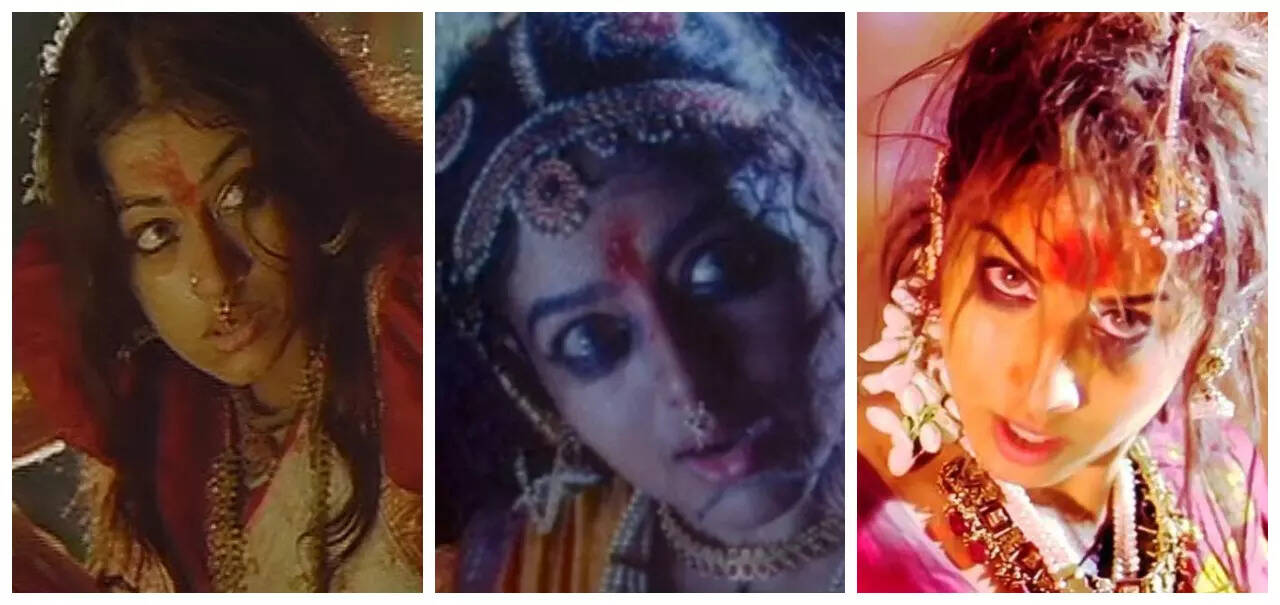
Vidya Balan’s breakthrough came with this horror-comedy remake of the Malayalam classic Manichitrathazhu (1993). Combining suspense, comedy, and music, it became a pan-India hit and inspired further adaptations, proving that strong storytelling crosses language barriers.
Why Remakes Work in India
With India’s many languages and film industries, remakes have long been a way to bring successful stories to a wider audience. While some critics argue this limits originality, others see it as a form of cultural exchange. Bollywood, especially in the 2000s, relied heavily on South Indian hits for remakes—a trend that continues today with films like Kabir Singh (Arjun Reddy) and Jersey.From tear-jerking dramas like Tere Naam to edge-of-your-seat thrillers like Drishyam and laugh-out-loud comedies like Hera Pheri, India’s most remade films showcase the shared spirit of its cinema. A great story crosses all boundaries, finding new life, new stars, and new fans each time it’s retold in another language.





